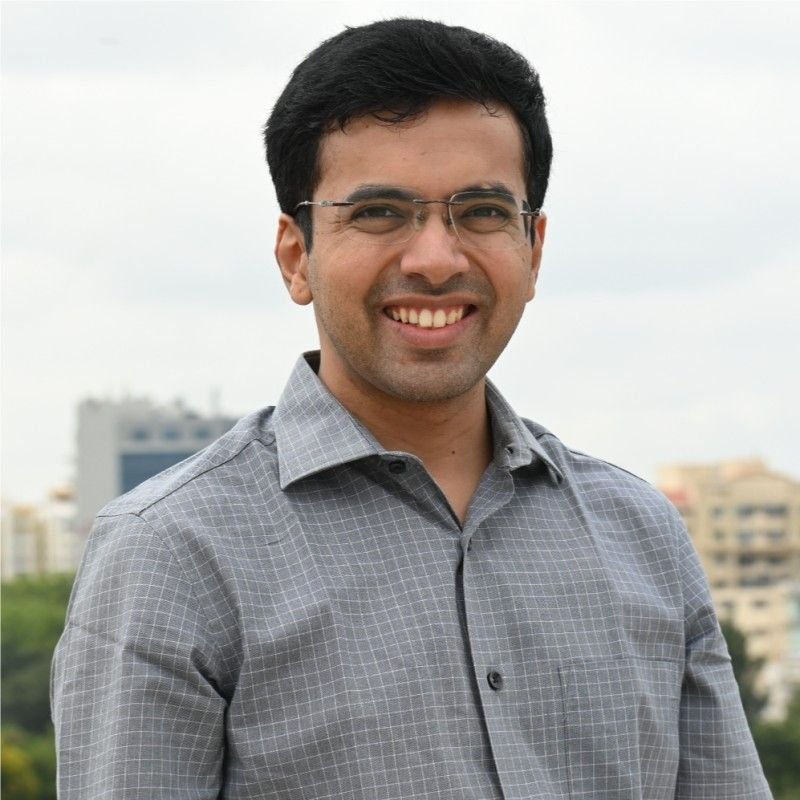"India will witness a rising demand for surgical navigation systems in the next 5 years"
April 20, 2024 | Saturday | Interviews
Cartosense is one of the handful of companies globally and the only company in India to have developed the complete surgical navigation stack, including optical tracking technology. Interacting with Nikhil Chandwadkar, the company’s Co-Founder & CEO, BioSpectrum India discovers how surgeries can get sophisticated by using latest technologies.
Can you share a brief on Cartosense’s technology and products?
Cartosense develops technology and products for making surgical interventions more targeted and precise using data. We are soon launching the C75 Surgical Navigation System, a breakthrough in single camera optical navigation. At the heart of the product is a real-time tracking system which uses a single optical sensor to track specialized instruments with infrared emitters. Navigation software takes the patient’s radiological images, such as CT, MR, as input, and overlays real-time information such as tracked instrument positions and trajectories on to the images, which helps the surgeon make accurate decisions intraoperatively.
Our innovative single camera optical system tracks instruments at superior accuracies in working volumes that are much larger than the current state of art. And due to the advantage of requiring a single viewpoint for tracking instruments, it opens up valuable new workflows and brings a paradigm shift to the reliability of existing workflows in the operation theatre.
Cartosense is one of the handful of companies globally and the only company in India to have developed the complete navigation stack, including optical tracking technology. Our accuracies are tested in compliance with the ASTM F2554 standard and benchmarked against the best in the current state of art.
Given the growing interest in image-guided surgical navigation systems, how does Cartosense envision the potential integration of such technologies in cobot solutions within the Indian medical field?
When any invasive surgery is performed, you want it to be as targeted as possible while ensuring positive patient outcomes. There are 4 steps to achieving this: knowing how you want to operate, quantifying the plan, accurate execution, and post-operatively quantifying the outcome. Surgical Navigation started out in neurosurgery as a means to quantify the plan and provide real-time information for accurate execution. However, under the umbrella of digital surgery, it is now playing an increasing role in all of the four areas and has expanded to many more clinical specialties.
Navigation technologies are the backbone of digital surgery because the tracking system component generates information that is complementary to radiological imaging, and the software component is a hub for integrating that information along with radiological images with a variety of tools such as imaging equipment, robotic solutions and advanced visualization displays. Together these technologies enhance the surgeon’s awareness and increase the accuracy of specific actions. Cartosense is laser focused on building very strong foundation technologies so that products built over these can continue to deliver effective patient care over years and decades to come.
Robotic solutions in particular augment the surgeon’s motor skills guiding instruments and implants to more controlled positions. Robots do and will continue to work in lockstep with the surgeon, so that the surgeon is always the approving authority. This is due to the fundamental nature of risk and liability in medical treatment, and therefore surgical robots are almost always cobots.
In the Indian market, the adoption of these technologies by surgeons and hospitals is on an increasing trend in the last 5 years and will continue to rise faster in the near future. Early adopters might receive great bundling deals from multinational multi-product companies, and their purchases can often be marketing expenses. However, only products that are truly beneficial and practical can succeed over a longer period of time.
As a startup focused on medical robotics, how do you view the importance of collaboration between established players like hospitals and emerging companies like yours in driving the adoption of medical cobots in India? What is your vision for Cartosense's role in this ecosystem?
There is an emerging consensus that medical device innovation developed out of India and other emerging countries with relatively cost-efficient healthcare systems has the potential to do a lot of good world-over, by making good quality healthcare accessible globally. There is widespread recognition even in developed economies where the costs of healthcare are ballooning, that medical device innovation needs to be cost-effective.
Cost-effective doesn’t necessarily mean lower cost, but rather higher quality innovation which is mindful of unit economics of the healthcare system. This is vitally important for innovation in the space of digital surgery and cobots because these are expensive capital equipment. The utility and effectiveness of the solution depends entirely on whether it can continue to provide value to the surgeon and the hospital over a long horizon of 8-10 years, rather than being an attractive marketing tool, which has to be decommissioned after a couple of years due to the impracticality of using it or its unaffordable unit economics (examples of such products are quite prevalent in the market).
India can play a pioneering role in this regard. Our high-quality and relatively cost-efficient healthcare system can be aligned to become an effective vehicle for nurturing locally developed high-quality innovation and present it as a proven solution to the world.
This of course requires a strategic priority from financers, regulators, surgeons and hospitals for identification, adoption, and promotion of genuine high-quality innovation. The government already recognizes its role in financing such innovation because focus on such sectors needs to be strategic before it can become capitalistic.
Cartosense has been the beneficiary of grants and schemes administered by BIRAC, MeitY and C-CAMP. With increased strategic participation from private capital, regulators, surgeons and hospitals, India can become a hub for quality medical device innovation.
Anusha Ashwin









